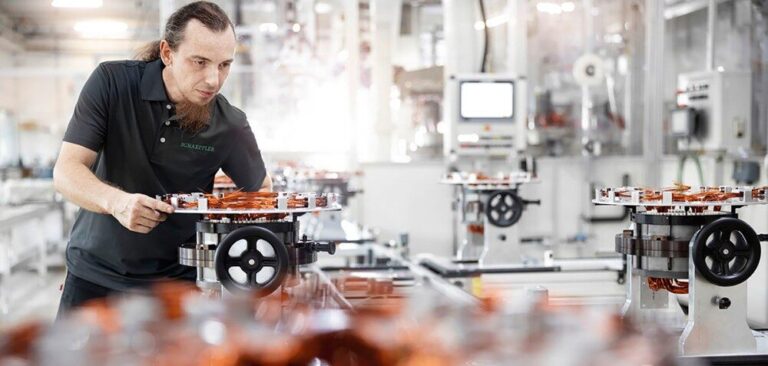A consortium consisting of 17 partners led by automotive and industrial supplier Schaeffler has launched a research project dubbed AgiloDrive2, funded by the German Federal Ministry for Economic Affairs and Energy (BMWi).
The three-year project aims to develop an agile and digitalized production system and a modular product concept for electric motors. It will also focus on ways of making electric motor production more flexible, sustainable and financially compelling based on data-based production technologies, agile process chains and intelligent control architectures.
“Schaeffler is a technology leader in the field of e-mobility and is characterized by a high level of production experience,” said Dr Jochen Schröder, head of the e-mobility division at Schaeffler. “As consortium leader, we bring our long-standing expertise as a pioneer in e-mobility to the table and are driving the project forward decisively with strong partners. Digitalization and automation are key to the sustainable factory of the future and generate opportunities for us and our customers along the entire value chain.”
On completion of the project, the company aims to quickly transfer the findings to electric motor production at its Bühl facility – the headquarters of its automotive technologies division – where a primary plant is currently under construction for electric motor production. The project was preceded by an 18-month collaboration with the Karlsruhe Institute for Technology (KIT), funded by the Baden-Württemberg Ministry of Economics, Labor and Tourism.
Schaeffler notes that in terms of technical features and depending on the type of electrified powertrain used, electric motors can vary considerably in their topology, using different winding types with differing packaging, torque, continuous output and operating behavior requirements.
“We are responding to the variety of versions and varied manufacturing quantities with an agile production method, which we intend to develop and validate mutually in the AgiloDrive2 project,” added Thomas Pfund, president of the e-motors business unit at Schaeffler. “Instead of rigid production lines, we will be looking to highly flexible, digitalized and efficient technology modules, which are easily scalable, permit flexible configurations and interlinking, and can be established on a software basis.”
Schaeffler hopes that the introduction of standardized machine connections, hardware and software interfaces, and cross-manufacturer communication standards should help accommodate the rising complexity of motor technology and permit the rapid integration of systems with a plug-and-play approach. Meanwhile, a modular machine structure will allow efficient and sustainable reuse of production equipment. Furthermore, digital twins will encourage efficient production planning and accelerated commissioning. It is hoped that AI solutions will increase product quality, and digital qualification methods will facilitate and expedite employee training.


